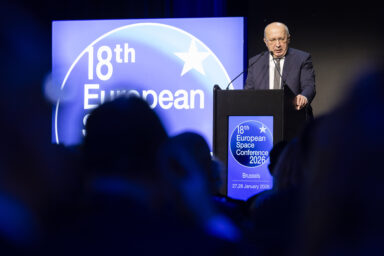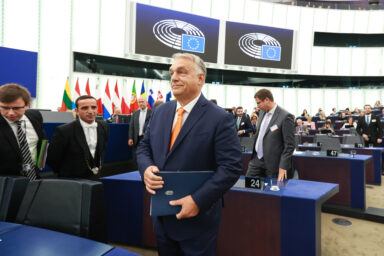The European Commission has proposed a new Media+ strand within its forthcoming long-term budget, aiming to bolster the viability of the European media sector amid mounting economic, technological and political pressures. The programme, part of the proposed Multiannual Financial Framework (MFF) for 2028–2034, is to receive €3.194bn through the newly created AgoraEU initiative.
Media+ will be part of the new AgoraEU programme, which brings together the existing Creative Europe and Citizens, Equality, Rights and Values (CERV+) strands. AgoraEU sits under Heading 2 of the European budget, titled Competitiveness, Prosperity and Security, which allocates €589.6bn to support Europe’s digital, economic, and democratic priorities. With a proposed €3.19bn for Media+, the initiative aims to strengthen support for the audiovisual sector and independent journalism, though concerns remain about the dilution of focus within this broader framework.
“News media outlets and journalists across the Union are under increased pressure, notably due to the rise of global online platforms, shifting consumption habits and the growing spread of disinformation.” – The European Commission
According to the Commission, Media+ is to respond to structural challenges facing both the audiovisual and news media industries. These include declining advertising revenues, growing concentration of ownership, digital disruption, and threats to press freedom and journalistic independence.
News and audiovisual
Media+ is to focus on two core missions. First, it aims to bolster Europe’s audiovisual and video game sectors by supporting the creation of films, series, video games and immersive media. It also seeks to improve cross‑border distribution and audience access. As the Commission puts it, the strand will: “contribute to the cultural diversity and competitiveness of the audiovisual and video games industries, notably by enhancing creation and cross‑border distribution of European content and its access by citizens.”
Simultaneously, Media+ pledges to sustain a free, viable, and pluralistic news ecosystem. It proposes funding initiatives in investigative journalism, digital innovation, and media literacy, with an explicit aim to “enhance citizens’ access to trustworthy information and tackling disinformation” to “contribute to a free, viable and diverse Union information ecosystem, notably by supporting free and independent journalism and news media, enhancing citizens’ access to trustworthy information and tackling disinformation.”
Political, legislative backing
These two strands do not stand in isolation. Media+ is to function as a policy complement to existing EU law. It builds on the Audiovisual Media Services Directive (AVMSD), which mandates the promotion of European and independent content, and mirrors the protections embedded in the European Media Freedom Act (EMFA), such as editorial independence and transparency in media ownership. As described in the Commission, Media+ will “complement EMFA by providing financial support to news media outlets and strengthening editorial independence”.
To address the systemic threat of disinformation and online hate speech, Media+ also draws on the EU’s 2018 Action Plan against disinformation, the Code of Practice on Disinformation, and the Code of Conduct on hate speech, all now embedded within the Digital Services Act (DSA). Supported actions include enhancing media literacy and improving “situation awareness on the online information space across member states.”
You might be interested
Finally, Media+ is to play an economic role. The Commission underscores that it will help European media players “finance, produce and disseminate works that can be sufficiently visible… and are attractive to audiences in an increasingly open and competitive market within Europe and beyond.”
Doubts and worries
The European Federation of Journalists (EFJ) has long called for robust and secure funding for journalism across the EU, warning that without targeted support, the sector’s sustainability and independence are at risk. In light of increasing political pressure, shrinking revenues, and the rise of AI-generated content, EFJ advocates for EU-level funding that reaches journalists directly and supports training, safety, and ethical standards.
Following the European Commission’s unveiling that the new AgoraEU programme merges Creative Europe and CERV, reactions from cultural and media stakeholders were swift. Groups such as CEPI (European Audiovisual Production Association) and FIAD welcomed the increase in Media+ funding, projected to rise by 126 per cent to €3.19 billion, but voiced concern that the merger could dilute the programme’s focus on the audiovisual and journalistic sectors.
A joint letter from MEP Emma Rafowicz (S&D/FRA) and CULT Committee members echoed these worries, calling the merge a threat to impact, independence, and artistic freedom.
Long, winding road ahead
The AgoraEU regulation will be subject to review by the Council and the European Parliament during 2026, with a vote expected in 2027. If it passes, Media+ calls for proposals are likely to launch in early 2028. Media+ is part of a broader EU attempt to strengthen the foundations of democratic life in Europe, by investing in systems that sustain pluralism, independence and public trust.











